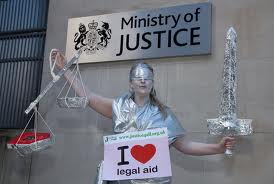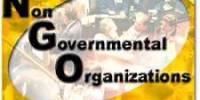IMPLEMENTATION OF GOVERNMENT LEGAL AID VERSUS NGO LEGAL AID
Realising the importance of legal aid in a given social atmosphere the developed countries like UK, USA, and Canada have adopted the legal aid programme. In these developed nations, legal aid has been identified as an effective instrument for erasing the socio-economic disparities in their societies. Therefore, understanding the government machinery and NGO’s efforts in providing legal aid is of importance.
In 37 year time of its independent constitutional history, legal aid movement in Bangladesh has not gained any momentum at the governmental level until 2000. It was in 2000 when the Government in assurance of financial cooperation by the Canadian International Development Agency (CIDA) made an initiative to provide legal aid to indigent litigants.
Enactment of the Legal Aid Act, 2000 by the Government of Bangladesh
With the enactment of the Legal Aid Act, 2000 and forming committees to dispose off cases, the government’s initiative cannot be ignored.59 The Legal Aid Act (Act No. VI of 2000) comprehensively provides for the declaration of the activities in National and District level. At national level there is National Legal Aid Board, at district level there are District Legal Aid Committees, in the Upazilla or Thana level there are Upazilla Legal Aid Committees and in Union level there are provisions of Union Legal Aid Committee.
The performance of the National Legal Aid Organisation at a Glance
According to statistics published in December 2003 by the National Legal Aid Organisation, legal aid has been given in total of 8208 cases which include 1296 civil cases, 5915 criminal cases, 886 family matters and 111 miscellaneous cases. In 61 districts under the coverage of legal aid programme 1807 panel lawyers in total have been appointed; total fund granted for legal aid is Tk. 1,87,23012 out of which Tk. 40,88,723 has been expended and the balance is Tk. 1,79,15,076.
The reason of such a big balance against the background of unmanageable number of indigent litigants is lack of proper publicity, awareness among indigent litigants and some other operational lacunae in the handling of legal aid programme.
In the fiscal year 1996-1997, the total allocation for legal aid fund was 13.7 million Taka, to be distributed through the District and Sessions Judge of each district, the amount varying in proportion to the size of the respective district. In 2001-2002, the total allocation for this legal Aid Fund was 2.5 million Taka, in 2002-2003, 3.0 million Taka, in 2003-2004, 5.0 million Taka, in 2004-2005, 10 million Taka were sanctioned for legal aid.61[18]
During 2005 to 2006, legal aid has been given in total of 11808 cases, in 61 districts total fund granted for legal aid is Tk. 54,60,000. During 2007 to 2008, 3267 panel lawyers in total have been appointed throughout 61 districts under the coverage of legal aid programme. No statistics of 2004-2005 was available in the Legal Aid Cell, Ministry of Law, Justice and Parliamentary Affairs. Statistics of 2005-2008 are also not coherent and done incompletely. Even the Supreme Court Report, 2007 is silent on this point.
Legal Aid through NGOs
The Legal Aid support of the NGOs is worth mentioning. In Bangladesh some leading NGOs have pioneered the legal aid movement. Among them most prominent are Bangladesh Legal Aid and Services Trust (BLAST), Ain o Salish Kendro (ASK), Madaripur Legal Aid Association. Bangladesh Environmental Lawyers Association, Bangladesh Shishu Adhikar Forum (BSAF) etc.
Legal Aid by BLAST
The Bangladesh Legal Aid Services Trust has national networks of lawyers and currently provides legal aid and mediation services in eighteen districts and five legal aid clinic.
Vision and Mission
BLAST envisions a society based on the rule of law in which every individual, particularly the poor and the disadvantaged women and children access to justice and there human rights are respected and protected.
Goals and Strategies
The goal of BLAST is to contribute in increasing general awareness of the concept of legal redress and the availability of free legal aid to the poor. BLAST has developed its expertise in protecting the rights of people in areas like labour rights, violence against women, trafficking, child rights, legal counseling and training for community awareness and Salish.
The BLAST model for providing legal aid has been very effective. It combines use of paid staff and private lawyers who are basically providing volunteer services for a modest stipend which does not cover a great deal more than their out of pocket costs. In choosing this approach BLAST has leveraged services for poor people which have a market value that far exceeds their cost.
Activities and Programmes of BLAST
BLAST has been providing legal aid to the needy selected on the basis of low range of income (TK. 3000/- or less per month) on pro bono basis. BLAST organized meetings with the local journalists at its 19 unit offices with a view to involving the local journalists with the activities of BLAST, identifying the problems of the people at the grass root level, conveying the activities of BLAST to the people at grassroots level through newspapers and making them aware of their rights through print and electronic media. The national and local level journalists of both print and electronic media took part in the meetings.
The Performance of BLAST at a glance
During the April 2001 to March 2002, BLAST dealt with 7,541 cases in litigation and resolved 2,225 of them. Of the cases that were resolved through a court judgment, BLAST won 85% of the time. A significant number of cases done by BLAST involve family disputes which includes failure to pay maintenance and child support, illegal dowry demands and domestic violence.
During April 2002 to March 2003 3,021 cases were filed in total in BLAST among which the number of settled cases was 2,412. During the April 2003 to March 2004, BLAST dealt with 4,049 cases and resolved 2,514 of them. During April 2004 to March 2005, April 2005 to March 2006, April 2006 to March 2007 and April 2007 to September 2007, the total number of field cases in BLAST were 5959, 6418, 6438 and 3,765 respectively. Among these, the number of settled cases was 2991, 3940, 4716 and 2377 respectively. 7,572 complaints pending for mediation and litigation Up to September 2007. Total Case filed 44,071, settled 28,090 (64%), pending case 15,981 (36%). Out of 28,090 settled cases 19,494 (69%) were in favour of its clients, 2,307 (8%) were against its clients and 6,289 (22%) were dismissed for default due to absence of clients.
Legal Aid through Ain o Salish Kendra (ASK)
Ain o Salilsh Kendra (ASK), (literally. Law and mediation Centre), a legal aid and human rights organisation, was started in 1986 with the purpose of providing free legal aid, particularly to women, workers and working children, and to promote and protect human rights. Founded by nine individuals, including lawyers, professionals, social workers and development workers, it began life in a small garage, loaned by a supporter.
Goals and Strategies of ASK
ASK’s goal is to create a society based on equality, social justice and the rule of law with a special focus on gender equality. It has consultative status with UNECOSOC and continues its commitment to promoting human rights within a democratic framework.
ASK’s strategies are generating human rights awareness and activating responses against human rights violations (HRVs); Promoting community activism for gender equity and social justice; Ensuring access to justice through legal aid; Providing emergency support service; Campaigning and advocacy for law and policy reforms; Ensuring transparency and accountability in public institutions; Enhancing capacity of human rights defenders; and Ensuring an effective institutional system.
Programmes and Activities of ASK
Human Rights Awareness
One of ASK’s major strategies has been to create awareness of human rights, in order to generate a demand for rights and entitlements within the community and to make state institutions and duty bearers responsible for promotion, protection and prevention of human rights. A wide range of persons from the grass roots to state level institutions is included in ASK’s awareness raising programmes.
Community Activism for Gender and Social Justice
The Gender and Social Justice Programme has been instrumental in developing and sustaining Community Based Organizations (CBOs) that promote and protect human rights. Significant among these are Manobadhikar Songrokkhan Porishod (MSP) and Manobadhikar Nari Sadar thana level. Gender and Social Justice (GSJ) Unit promotes community activism for gender and social justice in the working areas. The Unit has assisted in the formation of Manobadhikar Ainjibi Porishod (MAP), a federation of lawyers in the districts, who offer legal advice and voluntary services to the disadvantaged.
Access to justice
Access to justice through legal support and other related services beyond the ambit of legal services has been an overarching goal of ASK. Four units (Mediation and Rapid Response, Litigation, Outreach and Child Rights Unit) have adopted an interconnected and coordinated approach to provide access to justice. ASK’s legal support system set up in Dhaka is replicated now in villages by ASK’s partner NGOs such as BRAC. Disadvantaged women, workers, working children and economically well off yet vulnerable women have gained access to both the formal (court) and informal (stitionhahsh) systems of justice.
Litigation
The Litigation Unit facilitates access to justice by conducting court cases free of charge. The Unit receives criminal offences such as rape, murder, torture, acid burns, dowry violence, polygamy, detention matters, civil, revision, criminal appeal, etc. When mediation Unit to the Litigation Unit for processing in the court. Panel lawyers mainly conducted cases in the High Court Division and Labour Court in Dhaka, while staff lawyers conducted district court cases and outside Dhaka and in some cases in the Labour Court.
Legal Aid Clinics
In collaboration with local Partner Non-Government Organization, the Unit set up three legal aid clinics in 2008, where women’s access to justice was enhanced through legal and counseling advice to women in the above three districts. The Partner Non-Government Organization staff ran the clinics under regular supervision and monitoring by ASK staff lawyers. This included examining medication files, case files, reports and registers followed by necessary suggestions.
Child Rights
The Child Rights Unit has developed a flexible system of non-formal education for working children in drop-in centers. The Unit provided health and legal support to 1600 working children in 2008. ASK has also sensitized local communities to the need for protection of the rights for the child and about negative consequences of child labour.
Success of ASK
Access to justice though legal support and other related services beyond the ambit of legal services has been an overarching goal of ASK. Four units (Mediation and Rapid Response, Litigation, Outreach and Child Rights Unit) have adopted an interconnected and coordinated approach to provide access to justice. ASK’s legal support system set up in Dhaka is replicated now in villages by ASK’s partner NGOs such as BRAC. Disadvantaged women, workers, working children and economically well off yet vulnerable women have gained access to both the formal (court) and informal (shalish) systems of justice.
Legal Aid Programme by Madaripur Legal Aid Association (MLAA)
MLAA was established on March, 1978.74[24] It has been working in the field of providing free legal aid to the poor and marginalized people since 1978. MLAA has a mediation and legal aid committee in three districts of Madaripur, Shariatpur, Gopalgonh. Initially the organisation provided legal assistance to those who are incapable to access the state legal machinery due to the lack of awareness regarding their rights coupled with poverty, which acts as hindrance to surface their grievance.
Vision and Mission
The vision of MLAA is to create a just and fair Cambodian society, where everyone enjoys equal rights before the law. The Mission of the MLAA is to establish a society where people, particularly poor and destitute women and their children can live in justice and peace.
Goals and Strategies
One of the strategies of MLAA is to ensure that poor people have access to justice by providing legal aid in or outside court by qualified LAC lawyers. Besides this, to promote respect of laws and human rights in Cambodia by building awareness in communities about their legal rights and laws and advocating for-poor policies, and legal frameworks, empowering poor people to advocate for their rights.
Objectives
To make local justice systems more effective, improve disadvantage people’s access to the formal judicial system, institutionalize and modernize the traditional mediation system, contribute to the establishment of the rule of law and human rights culture in Bangladesh by raising awareness, advocate for law reform and reform of the legal system to make it more systematic, dynamic and acceptable are the objectives of MLLA.
Improving quality of life for disadvantaged people through establishing their human and legal rights, as well as women’s rights, to encourage peaceful coexistence. Is the goal of MLLA.
Current Activities
Creating UP Judicial system to activate Village Court & Arbitration Council, giving free legal assistance for the disadvantaged to access the formal judicial system, providing advocacy and lobbying for policy reform, making dissemination of Madaripur Model of Mediation to institutionalize ADR, institutional capacity building (staff development, monitoring & evaluation, human resource development) of MLAA are the current activities of MLLA.
Some Cases filed by NGOs in Defense of Legal and Human Rights
NGO’s success through movement may be visualised from the landmark cases. Here some cases settled by different NGOs have been discussed below:
Jahanara v. Managing Director
On 24/4/06 Jahanara came to BLAST alleging that she had been working as cleaner in Oriental Group from 9 months ago sincerely and honestly. She was a permanent worker. Her last working day was 14/04/06. On 14/04/06, the Managing Director (the opposite party), terminated her employment verbally. The applicant also claimed that when she had asked for her back wages, the authority denied to pay. Then the complainant approached BLAST for legal help to realize her back wages and other legal benefits.
On 7/05/06 BLAST sent first letter to the opposite party for the payment of the complainant’s dues through mediation.
On 28/05/06 BLAST sent second letter to the opposite party for the payment of the complainant’s dues through mediation.
The learned court served summons to the opposite party. The opposite party then communicated with BLAST. The opposite party agreed to pay the claimant’s arrear wages. On 16/01/07 the complainant received TK. 3,000/- (Three thousand only) and withdrew the case on oath before the learned court. On receiving the back wages and the legal benefits the complainant being satisfied expressed his gratitude to BLAST.
Salma Begum v. Managing Director
The Complainant Salma Begum being appointed as a permanent Senior Operator had been working in Jeacon Garments Ltd. from 06/05/2001 until 14/12/06 satisfactorily. She submitted an application seeking her maternity leave and benefits which she is entitled to according to labor law, subject to a medical certificate to be provided to the opposite party management within 8 months of her pregnancy period. On this basis the authority dismissed her form service with false allegations and this is unlawful. Thereafter the applicant contacted the opposite party management demanding her back wages and maternity benefits but the authority did not pay any heed to that. Then finding no alternative the complainant came to BLAST and sought legal help.
On 13.02.2007 BLAST sent a letter to the opposite party to resolve the complaint through mediation.
The opposite party replied to the letter in writing on 18/05/06.
The representative of the opposite party Md. Habib Hasan (admin) contacted BLAST by telephone. After telephone discussions and mediation the representative of the opposite party agreed to pay the complainant arrears and maternity benefits amounting to Tk. 22,000/-(Twenty two Thousand only).
Thereafter final mediation sittings were held on 12/03/2007 in the presence of the opposite party’s representative Md. Habib Hasan (admin) and BLAST Staff Lawyer Md. Hafijur Rahman and Sheikh Azizur Rahman. In this final sitting the opposite party paid BLAST TK. 22000.00 as the complainant’s benefits.
On receiving Tk. 22,000.00 from the opposite party, as the complainant was unwell, BLAST staff had gone to the complainant’s residence and given her the said amount. On receiving the back wages and the legal benefit the complainant being satisfied expressed her gratitude to BLAST.
Arifa Khatun v. Rashid Motta & others
On 3 July 2008, a girl student of class VIII of Gaibandha Sadar was about to be abducted by a man and his group but they were seen by the thana CBO secretary. He stopped them and mobilized people on the street to help him. They were taken to the police station, but the police did not help because of pressure from a former MP. In the meantime other villagers came to support the girl, and they file a case. Without in forming the CBO Secretary, the victim’s father and the man’s family members settled the matter in the thana and withdrew the case. The father promised that his sons would not do this again; the MP also obtained a written statement from his son promising not to harass a girl again.
It was difficult for the CBO to take action if the family did not want to continue the case. However, the CBO kept in touch with the student and found that the girl was not being harassed.
Selina Begum v. Md. Abdul Malek
On 15 July 2008 a shalish was arranged in the office of the thana MSP in Kushtia by the thana Committee to mediate in the complaint filed by a woman who hased discovered after her marriage that her husband was already married. She continued living with him, but later, when he stopped giving her maintenance and became violent, she filed a complaint with the union MSP member. Upon receiving the complaint the thana MSP called both parties, where she clearly stated that she did not want to stay with her husband. It was decided that he would pay her taka 20,000 as dower, and a divorcee would take place in accordance with Muslim Family Law Ordinance, 1961.
The MSP was able to obtain her dower money, which is rare in case of a village divorce, and the woman’s decision to opt out of the marriage was respected.
Amena ‘s Long Struggle for Dower and Maintenance
The following case illustrates the problems faced in pursuing litigation due to length of the trial and the change of address by the defendant to escape the trial. Amena’s marriage to Faruque was registered on 18 May 1991 in Dhaka. According to Muslim law, Taka 90,001.0 was fixed as dower money. They had a six year old daughter. After a few years of marriage, Faruque demanded dowry from Amena, and because her family was unable to meet his demands Faruque beat Amena and foreced her to leave his house.
Amena went back to stay with her parents. She first came to Ain o Salish Kendra (ASK) in November 1997 for legal assistance to recover dower and maintenance. ASK’s lawyer received the matter and after ASK failed to resolve the dispute through medication and negotiation, the Litigation Unit filed a case on 13 January 1998 in the Sixty Assistant Judge Court, Dhaka applying for dower and maintenance on behalf of Amena. In the mean time, Faruque sent a divorce letter to Amena. Which came as a shock to her.
The Court passed a judgment on 31 March 1999 instructing Faruque to pay dower and maintenance. Faruque failed an Appeal against the judgment. After hearing both parties the Court dismissed the appeal. Then the plaintiff filed a decree for execution of the judgment against the defendant. After ten years (13 January, 1998-16 November, 2008) Amena received Taka 201,601.0 as her dower money, past maintenance and child maintenance.
















